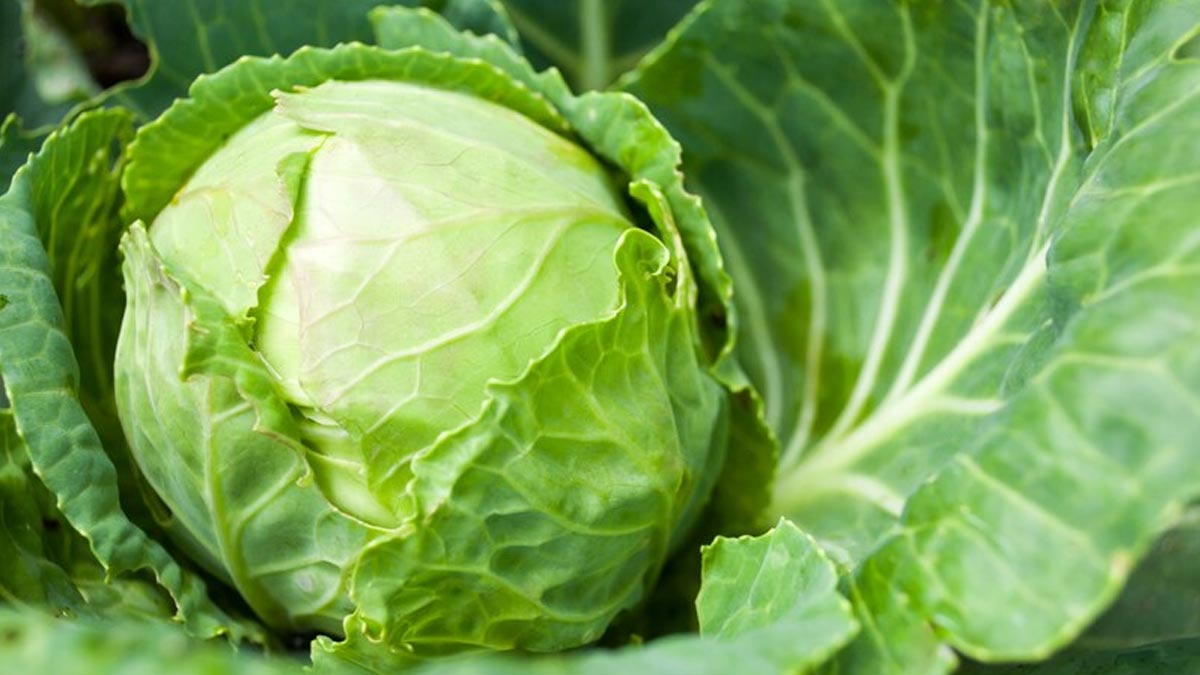
Cabbage is a leafy green vegetable also found in purple colour, belonging to the brassica family, which also includes vegetables like broccoli, cauliflower, and Brussels sprouts. It is known for its dense, round or oval-shaped heads composed of tightly packed leaves. This leafy green has a lot of health benefits to offer, however, if consumed too much, it can have adverse effects on health.
Table of Content:-
To understand the benefits and side effects of this veggie, OnlyMyHealth interacted with Abhilasha V, Cloudnine Group of Hospitals, Bengaluru. Abhilasha helped us list down the following benefits of the vegetable.
Rich in Nutrients
Abhilasha said, “Cabbage is low in calories but high in essential nutrients such as vitamin C, vitamin K, vitamin B6, folate, manganese, and fibre.” These nutrients are important for overall health and well-being.
Antioxidant Properties
Studies have shown that cabbage contains antioxidants such as vitamin C and flavonoids, which help protect the body from oxidative stress and reduce the risk of chronic diseases.
Anti-inflammatory Effects
As per Abhilasha, certain compounds in cabbage, such as glucosinolates and anthocyanins, have anti-inflammatory properties. Consuming cabbage may help reduce inflammation in the body and lower the risk of inflammatory conditions.

Supports Digestive Health
“The fibre content in cabbage promotes healthy digestion by adding bulk to stool and supporting regular bowel movements,” Abhilasha said. This can help prevent constipation and promote a healthy digestive system.
May Help Lower Cholesterol
Some studies suggest that cabbage consumption may contribute to lower cholesterol levels, potentially reducing the risk of heart disease.
May Aid in Weight Loss
Cabbage is low in calories and rich in fibre, which can help you feel full and satisfied with fewer calories. Including cabbage in your diet may support weight management goals.

Supports Heart Health
The fibre, potassium, and antioxidants in cabbage can contribute to heart health by helping to regulate blood pressure levels and reducing the risk of cardiovascular diseases.
Potential Cancer-Protective Effects
According to Abhilasha cabbage contains compounds like glucosinolates, which are believed to have cancer-protective properties. “Regular consumption of cabbage may help lower the risk of certain types of cancers, including colon, breast, and lung cancer,”said Abhilasha.
Boosts Immunity
The high vitamin C content in cabbage supports a healthy immune system and helps the body fight off infections and illnesses.
To enjoy the health benefits of cabbage, incorporate it into your diet by adding raw cabbage to salads, coleslaw, or sandwiches, or including cooked cabbage in soups, stir-fries, or casseroles. Consuming a variety of colourful vegetables, including cabbage, can contribute to a balanced and nutritious diet that supports overall health and well-being.
Also read: Try These 8 Leafy Green Vegetables To Boost Overall Health

Side Effects Of Consuming Cabbage
While cabbage is a nutritious vegetable with several health benefits, there are a few potential drawbacks or considerations associated with its consumption.
Digestive Issues
“Some individuals may experience gas, bloating, or flatulence after consuming cabbage, especially if eaten raw or in large quantities. This is due to the cabbage's fibre content and certain sugars that can be difficult to digest for some people,” Abhilasha said.
Thyroid Interference
Cabbage contains compounds called goitrogens that can interfere with thyroid function. “In individuals with thyroid disorders or iodine deficiency, excessive consumption of raw cabbage could potentially exacerbate thyroid issues,” said Abhilasha.

May Cause Allergic Reactions
While rare, some individuals may be allergic to cabbage or other cruciferous vegetables. “Allergic reactions can range from mild symptoms like itching or hives to more severe reactions such as difficulty breathing or anaphylaxis,” said Abhilasha.
Risk of Gas and Flatulence
Cabbage contains certain sugars and fibres that can ferment in the gut, leading to gas production and discomfort in some individuals, especially those with sensitive digestive systems or irritable bowel syndrome (IBS).
Potential Risk of Kidney Stones
“Cabbage is moderately high in oxalates, which are compounds that can contribute to the formation of kidney stones in susceptible individuals,” said Abhilasha. People with a history of kidney stones or those at risk for developing them may need to moderate their intake of high-oxalate foods like cabbage.
Conclusion
Cabbage has its share of health benefits however consuming it in abundant quantities can harm your health. Remember, moderation is the key, eat mindfully.
Also watch this video
How we keep this article up to date:
We work with experts and keep a close eye on the latest in health and wellness. Whenever there is a new research or helpful information, we update our articles with accurate and useful advice.
Current Version